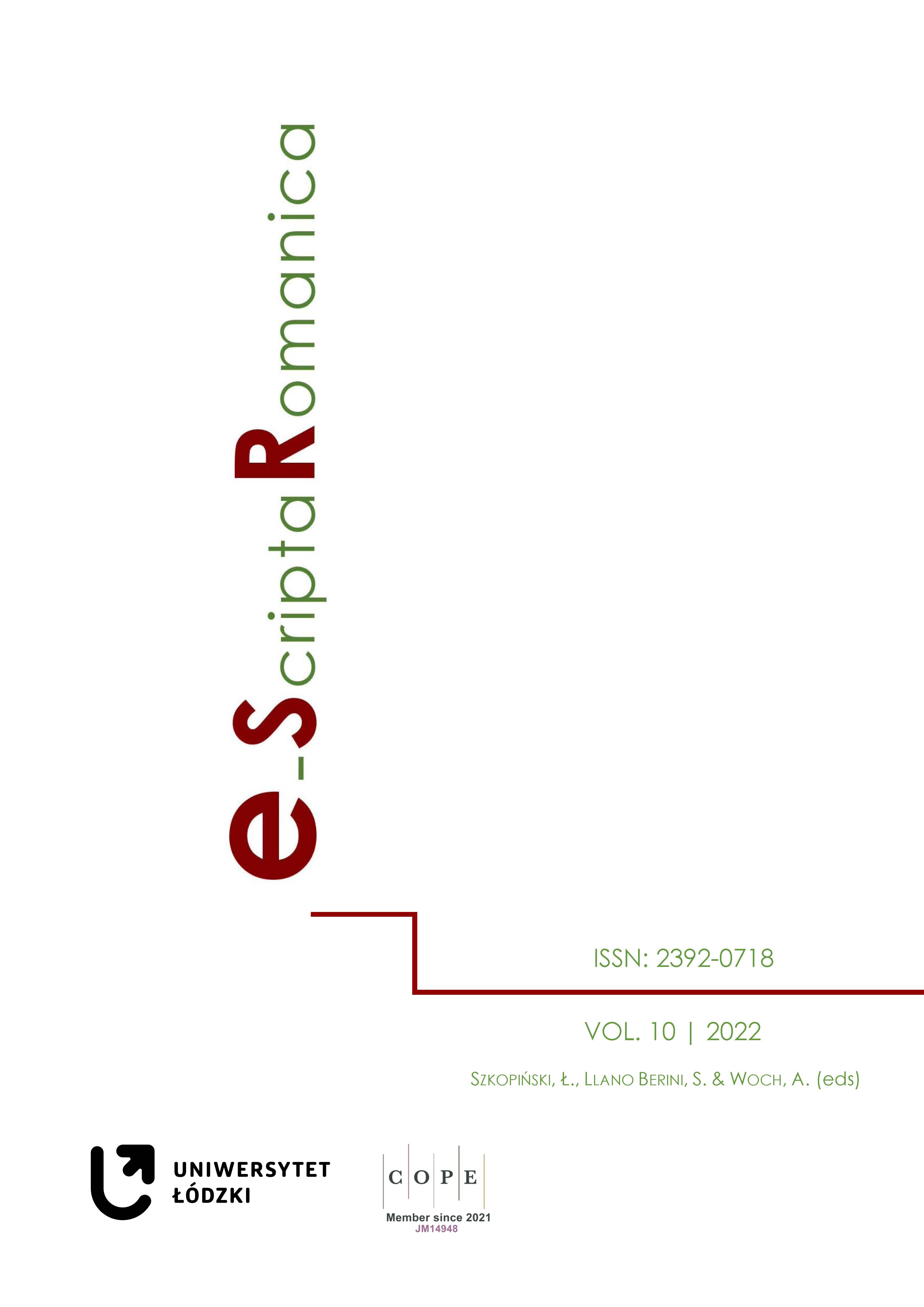Between reclusion and deliverance: poetic of space in Le corps de ma mère of Faouzia Zouari
DOI:
https://doi.org/10.18778/2392-0718.10.09Keywords:
borders, environment, animal, man, history, Tunisia, urban space, rural space, female body, seclusion, deliverance, modernizationAbstract
Considered a geographical concept par excellence, space has invested the literary field, to underline the importance of its role in the configuration of a text, both in terms of decor, characters and plot. Much more than a simple scenic element, space crystallizes a set of data, the meanings of which reveal the way it is perceived or designed. In Le corps de ma mère the narrator evokes her mother and, through her, the life of Bedouin women in Tunisia. She recounts how she managed to free herself from a long ancestral tradition that is particularly restrictive for women and describes the changes that occurred with the Jasmine Revolution. The book shows a gap between the countryside and a big city in Tunisia, between traditional culture, religion, superstition, demons, ancestral customs, tales and modernization. In fact, the novelist gives us the extraordinary family story of Yamna, her mother, who lived in a small village in Tunisia, secluded for fifty years in her house. Then, ill, she found herself uprooted in Tunis, where her children insisted that she should be cared for. At the modern hospital where she is going to die, she is accompanied by her daughters to make confessions that reveal a perception of space that is based on the ambivalence between confinement and deliverance. The opposition between urban space and rural space, in particular the indictment drawn up against the capital, as well as the female body as an ideological space will be the objects of this study.
References
BARTHE-DELOIZY, F. (2010). Les spatialités du corps : des pratiques ordinaires aux expériences extrêmes. Géographie, Bordeaux : Université Michel de Montaigne – Bordeaux III.
Google Scholar
BLANCHOT, M. (1955). L’espace littéraire. Paris : Gallimard.
Google Scholar
BOURNEUF, R. (1970). L’Organisation de l’espace dans le roman. Études littéraires, 3(1), 77-94. https://doi.org/10.7202/500113ar
Google Scholar
DOI: https://doi.org/10.7202/500113ar
GASTON, B. (1957). La poétique de l’espace. Paris : PUF.
Google Scholar
GENETTE, G. (1979). Figures II. Paris : Éditions du Seuil.
Google Scholar
GODFROY, A. (2006). Qu’est-ce qu’un espace littéraire ? Acta fabula, 7(6), http://www.fabula.org/acta/document1705.php [18/11/2021].
Google Scholar
GUNDAY, R. (2007). L’espace dans les romans de Michel Butor. https://www.academia.edu/39199074/L_ESPACE_DANS_LES_ROMANS_DE_MICHEL_BUTOR [26/05/2022].
Google Scholar
MITTERAND, H. (1980). Le discours du roman. Paris : PUF.
Google Scholar
ROSEMBERG, M. (2016). La spatialité littéraire au prisme de la géographie. L’Espace géographique, 4, pp. 289-294. https://www.cairn.info/revue-espace-geographique-2016-4-page-289.htm [27/05/2022].
Google Scholar
DOI: https://doi.org/10.3917/eg.454.0289
SONG, K-J. (2012). La Sémiotique de l’espace dans l’œuvre de Le Clézio. Le cas de La Quarantaine. 10th World Congress of the International Association for Semiotic Studies (IASS/AIS). Universidade da Coruña, pp. 371-382. https://ruc.udc.es/dspace/bitstream/handle/2183/13331/CC-130_art_37.pdf?sequence=1 [20/05/2022].
Google Scholar
ZIETHEN, A. (2013). La littérature et l’espace. Arborescences. https://www.erudit.org/fr/revues/arbo/2013-n3-arbo0733/1017363ar/ [26/05/2022].
Google Scholar
DOI: https://doi.org/10.7202/1017363ar
ZOUARI, F. (2016). Le corps de ma mère. Tunis : Déméter.
Google Scholar
Downloads
Published
How to Cite
Issue
Section
License

This work is licensed under a Creative Commons Attribution-NonCommercial-NoDerivatives 4.0 International License.











